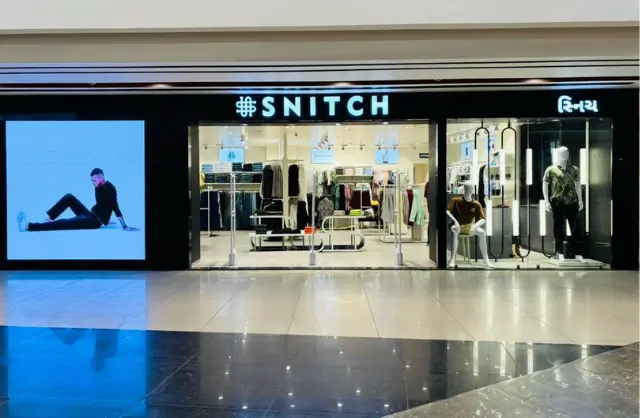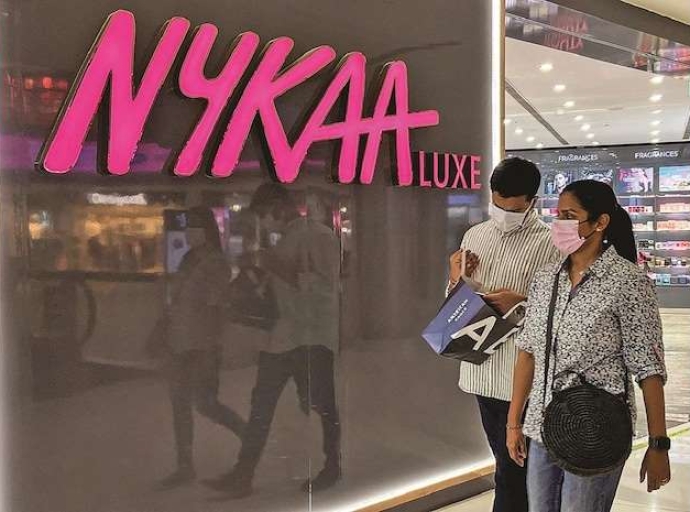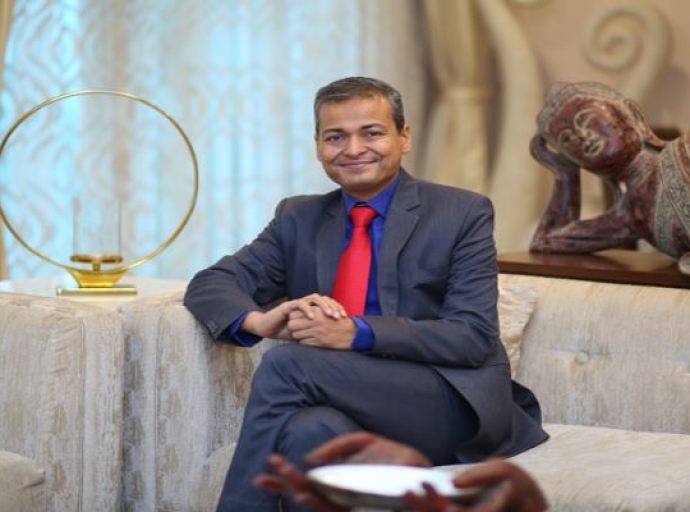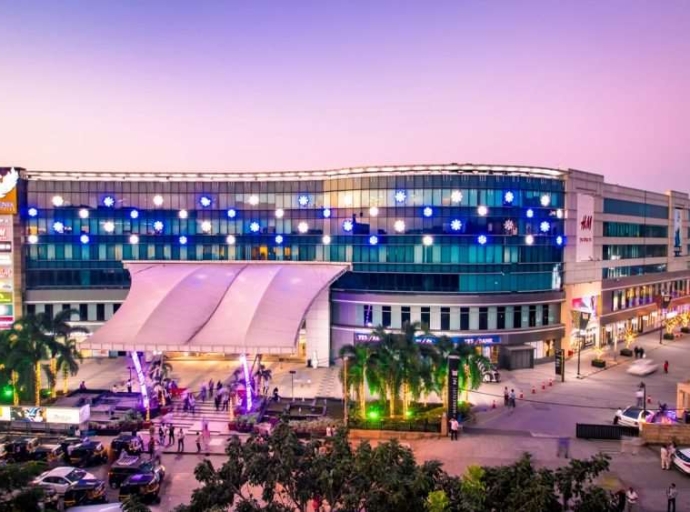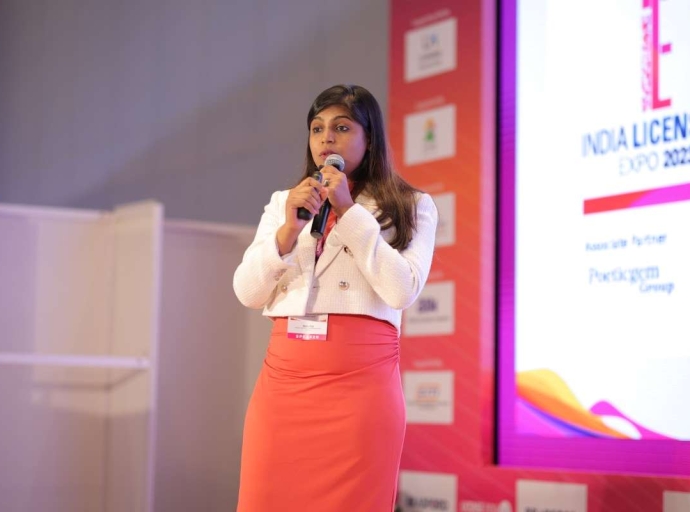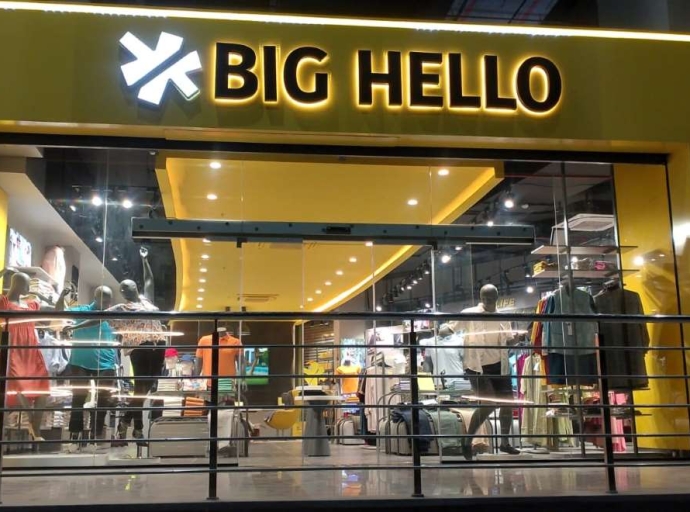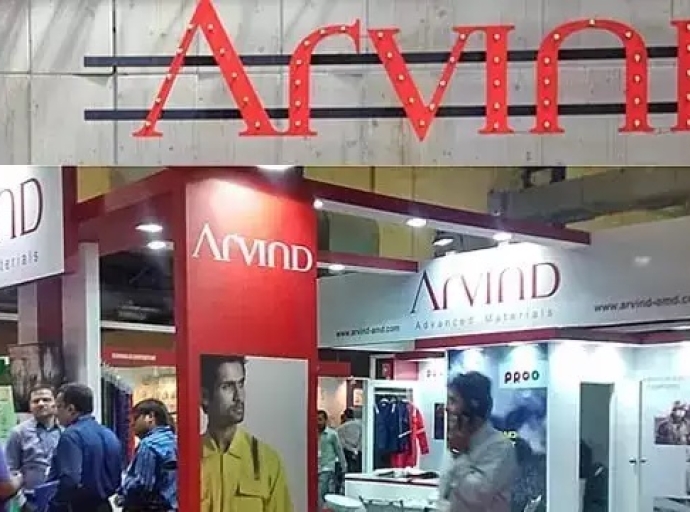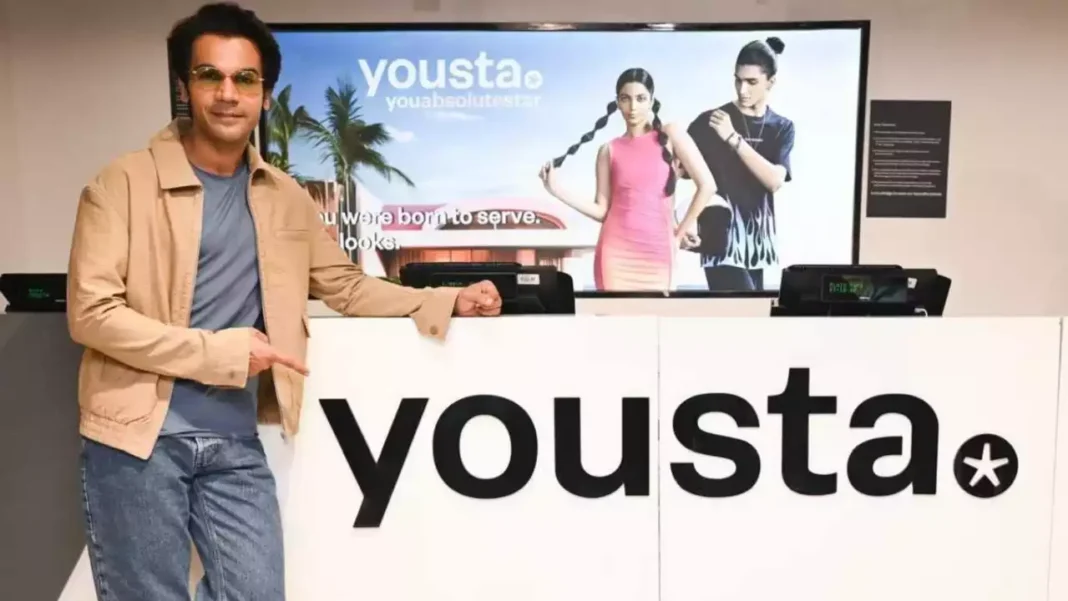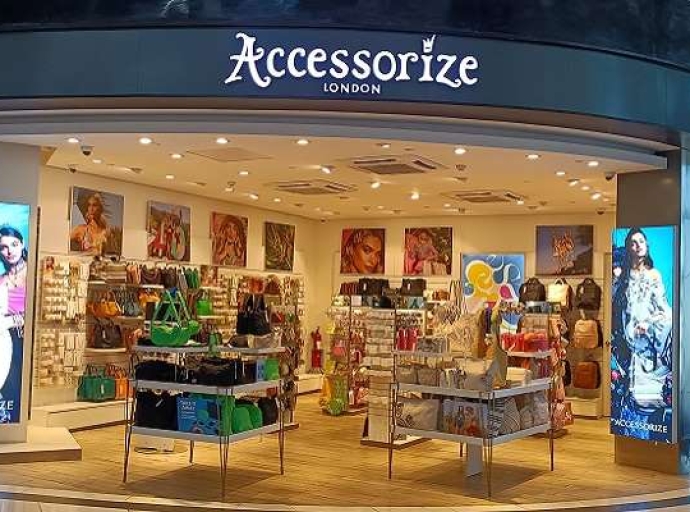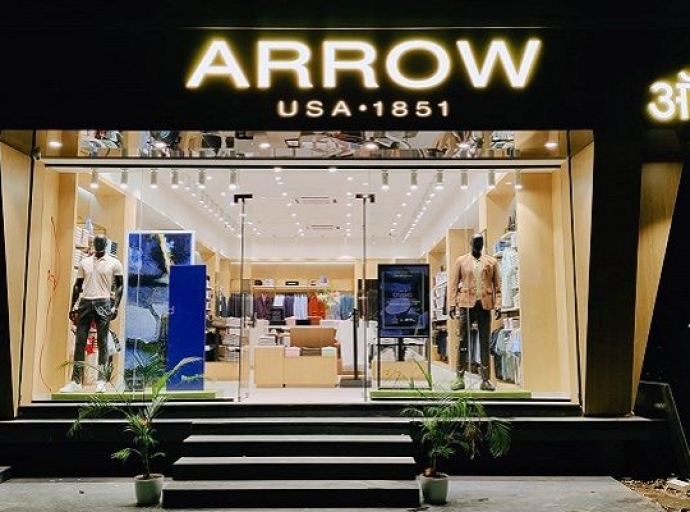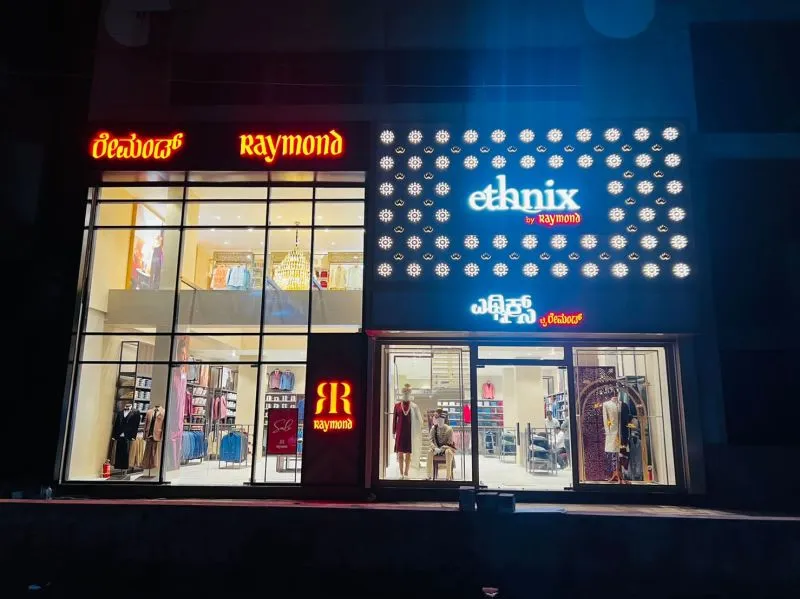Flipkart's budget-friendly e-commerce platform competing with Meesho and Amazon Bazaar, Shopsy has appointed Prathyusha Agarwal as its new head. Agarwal will also serve as vice president at Flipkart. Previously, she was the chief business officer at edtech firm Byju’s, and has held positions at Zee Entertainment, Tata Cliq, and Unilever, according to her LinkedIn profile.
Agarwal succeeds Adarsh Menon, the former senior vice president who also led Flipkart’s ReCommerce division and other new ventures. Menon left Flipkart last October to become the global president of car rental company Zoomcar.
Agarwal's appointment comes amid significant executive changes at Flipkart. On May 20, Anuj Rathi was named CEO of Flipkart's travel booking unit Cleartrip, following the departures of former CEO Ayyappan R and former CFO Aditya Agarwal.
Additionally, senior vice president of customer growth and retention, marketing, and ads Prabh Simran Singh, and vice president of monetisation Sankalp Mehrotra, are set to exit the company. Other senior vice presidents, including Amitesh Jha (marketplace and categories lead), Dheeraj A (fintech and payments head), and Bharath Ram (growth and retention leader), have also departed in recent months.
Flipkart launched Shopsy in 2021 to target low average selling price (ASP) categories, offering primarily unbranded products in segments such as apparel, small electronics, and kitchenware. This sector remains highly competitive, with Amazon introducing its low-priced fashion and lifestyle platform, Bazaar, in April. Reliance-owned Ajio is also preparing to launch a similar platform, Ajio Street.
All Stories
Expanding its store network in the city, leading D2C men's fast fashion brand, Snitch has launched its second exclusive brand outlet in Vadodara, Gujarat. The store was launched on May 19, 2024 at the EVA Mall in the city. The brand had launched its first store on April 17, 2024, at Neptune Trion/
With these inaugurations, Snitch now boasts six exclusive stores across India, including two each in Surat and Bengaluru. Featuring the latest in men's apparel and accessories, these stores offer patrons a chance to immerse themselves in a world of style and sophistication.
The stores enable the brand to interact with thousands of customers and learn about their unique tastes and preferences. Coupled with its extensive experience in men's fashion, these insights allow the brand to create more relevant and compelling offerings for its customers, says Siddharth Dungarwal, Founder & CEO, Snitch.
Committed to expanding its offline presence, Snitch plans to open multiple stores in urban India. The brand has already garnered a loyal following for its trendy designs, high-quality products, and sustainability efforts. Its expansion into new markets highlights its growing popularity and the increasing demand for products.
The consolidated net profit of Nykaa operator FSN E-Commerce Ventures increased by 187 per cent to Rs 6.9 crore during Q4 FY24 ended March 2024,
This was against Rs 2.4 crore net profit recorded in the corresponding quarter last year.
The company’s revenue from operations during the quarter rose by 28 per cent Y-o-Y to to Rs 1,668 crore. Revenue from the beauty and personal care (BPC) business grew by 24 per cent Y-o-Y to Rs 1,389 crore. Its gross merchandise value (GMV) for the segment increased by 30 per cent Y-o-Y to Rs 2,120 crore. FSN’s net sales value (NSV) for the BPC business jumped by 24 per cent Y-o-Y to Rs 1,271 crore.
Meanwhile, revenue from the fashion business rose by 27 per cent Y-o-Y To Rs 1,334 crore in the March quarter, with GMV for the segment growing 27 per cent Y-o-Y to Rs 842 crore.
Revenue from other businesses grew by 90 per cent Y-o-Y to Rs 146 crore, while GMV for the segment increased 68 per cent Y-o-Y to Rs 255 crore.
The company’s board plans to invest Rs 20 crore in its wholly owned subsidiary, FSN International, on a rights basis. Further, FSN International plans to invest approximately $1.9 million in one of its overseas arms.
Lalit Agarwal, Founder & Managing Director, V-Mart Retail, says, the company expects to grow by 18-19 per cent this year. He acknowledges that the company is still striving to return to pre-COVID same-store sales levels. It is taking strategic steps to enhance its offerings with the best fashion, products, and prices. V-Mart is also focusing on reducing the average selling price and introducing products appealing to Gen Z consumers.
In the retail sector, value has become a significant driver of fashion, with increasing consumer movement from unorganised to organised retail. This shift has led to better footfalls and improved sales compared to previous quarters. Smaller towns are experiencing resurgence in consumer demand, partly fueled by the economic boost from recent elections. Festivals like Eid and Poila Baisakh contributed to positive performance in the first month of the current quarter. However, a decline in wedding-related sales during May and June has been observed, balanced by an uptick in holiday and travel-related consumer spending.
For FY25, Agarwal aims to achieve continued business growth. Efforts to improve internal capabilities, provide top fashion and products at competitive prices, and launch Gen Z-targeted styles are beginning to yield results, he says. V-Mart achieved 6 per cent same-store sales growth (SSSG) in the last quarter and aims to sustain or surpass this growth, targeting overall revenue growth of 18-19 per cent this year.
Despite reporting a loss in Q4, V-Mart’s performance was in line with expectations. The company's online platform, Limeroad, has been a significant area of focus, with efforts underway to reduce its financial burn and integrate it more effectively with V-Mart’s offline operations. No new acquisitions are planned, indicates Agarwal. The company’s current priority is the successful integration and scale-up of Limeroad to complement V-Mart's physical retail presence, he adds.
A recent report by Knight Frank India, ‘Think India Think Retail 2024’, highlights the dynamic picture of retail landscape in south India especially Chennai, Bengaluru and Hyderabad.
Retail scenario in Bengaluru
Bangalore's tech-savvy population is driving the retail boom. Consumers are increasingly comfortable with online shopping, but also value the physical shopping experience for socializing, trying on products, and availing immediate gratification. This translates to a 'phygital' retail experience, where online research and offline purchases go hand-in-hand. Indeed, the city's retail space is divided between traditional and non-traditional retail. However, the report suggests that organized retail is steadily gaining traction, particularly within malls.
Malls are currently witnessing stronger growth compared to high streets in this metro. This is due to several factors. What works for malls is they offer a one-stop-shop experience with diverse brands, entertainment options, and a comfortable ambience, catering to the evolving consumer preferences. Also they attract leading national and international brands, which are a major draw for the metro’s young and brand-conscious population. Malls provide a platform for organized retail chains to flourish, offering standardized quality and wider product selection.
Some of the leading markets include in the metro are: Commercial Street, Brigade Road, Koramangala, MG Road. Among malls the popular ones are Orion Mall, Phoenix Marketcity, UB City and Forum Mall.
Malls lead in Chennai
While both high streets and malls are experiencing growth, malls are currently leading the charge. Chennai's consumers exhibit some distinct shopping behaviour. That is, Chennaiites are known to be value-conscious shoppers, seeking good quality at competitive prices. This is evident in the continued success of traditional retail formats. For the metro’s population, familiarity breeds trust. Local brands and stores with a long-standing reputation often enjoy strong customer loyalty. Chennai's retail landscape is a unique blend of traditional and modern formats. Traditional stores still hold a significant share of the market, particularly for daily essentials and groceries. However, organized retail, including supermarkets and national chain stores, is witnessing steady growth, especially in malls. The report indicates a higher share of retail space occupied by malls compared to high streets. This trend is likely to continue due.
Some of Chennai's most popular shopping destinations are T. Nagar, renowned for its gold shops and textile stores. Parry's Corner, a hub for electronics and gadgets. Pondy Bazaar, is a one-stop shop for everything from clothes and footwear to wedding trousseaus.
Hyderabad malls flourish
Malls are currently experiencing stronger growth compared to high streets in Hyderabad. Hyderabadis exhibit distinct shopping behaviour as they are known for being bargain-savvy, seeking good quality at reasonable prices. However, there's a growing brand consciousness, particularly among the younger generation. National and international brands are increasingly sought after. Hyderabad witnesses a boost in retail activity during festivals like Diwali and Dussehra. As of 2021, traditional retail still holds the major share (75 per cent) of Hyderabad's retail market. However, organized retail (malls, supermarkets, etc.) is growing at a healthy pace (18 per cent), with e-commerce capturing the remaining 7 per cent. The report suggests that a larger share of organized retail currently resides in malls due to the factors mentioned earlier. However, high streets are not fading away. They cater to budget-conscious shoppers and offer a unique local flavour.
Hyderabad boasts of prominent shopping hubs like Banjara Hills, the upscale area known for luxury brands and designer boutiques. Charminar, a bustling market with its historic charm, offering traditional wear, jewellery, and local crafts. Begumpura popular for electronics, clothing, and household items.
Fashion rules across the metros
Interestingly, one common factor among all three metros is that fashion/apparel retail holds a significant share in retail space, catering to the fashion-forward population. Malls are likely to have a larger share of fashion retail due to the presence of prominent national and international brands. However, high streets still boast a strong presence of local boutiques and budget-friendly fashion options. The region’s vibrant textile heritage and growing brand consciousness contribute to this dominance. Malls tend to house premium and international fashion brands, while high streets offer a wider range of options catering to different budgets in all metros.
The Indian e-commerce landscape is witnessing a significant shift in consumer behavior, with shoppers becoming more accepting of platform fees levied by online retailers. This trend marks a move away from the earlier focus on deep discounts towards a more discerning approach to online purchases. The recent introduction of fees by major players like Myntra, Zomato, and Swiggy, signifies a maturing market and a focus on sustainable business practices.
A quiet acceptance of platform fees
For years, Indian e-commerce thrived on a strategy of heavy discounts and freebies to attract customers. This approach, while successful in driving adoption, resulted in razor-thin margins for companies. With funding drying up, the focus has shifted towards profitability, leading to the introduction of platform fees.
Ecommerce platform Myntra recently increased its platform fee by a third to Rs 20 per order, and unlike a few years ago, there wasn't a social media backlash. This quiet acceptance suggests a maturing consumer base, prioritizing factors beyond just the lowest price. This trend extends beyond Myntra. Platforms like Nykaa Fashion charges Rs 29 per order, while food delivery giants Swiggy and Zomato have introduced Rs 3-4 platform fees in addition to delivery charges. Notably, Amazon, Flipkart, and Reliance's Ajio haven't implemented such fees yet.
Focus on unit economics and profitability
The acceptance of platform fees benefits e-commerce companies by allowing them to focus on unit economics - the cost of selling a single product. Previously, companies relied heavily on discounts and promotional offers to attract customers, hindering profitability. With funding drying up, a shift towards sustainable business models has become crucial.
For online food delivery platforms, a small platform fee can significantly improve their financial performance. As Karan Taurani of Elara Capital points out, a Rs1 platform fee could potentially improve EBITDA (earnings before interest, tax, depreciation, and amortization) by 5 per cent. This metric is a key measure of a company's operational health.
For example, Zomato's experience exemplifies the positive impact of platform fees. After implementing a platform fee in July 2023, the company reported improved margins and a consistent rise in the number of transacting customers. Myntra has also experimented with platform fees, starting with ₹10 and gradually increasing it to Rs 20. This demonstrates their confidence in a customer base that prioritizes convenience and a wider selection over minimal discounts.
Experts believe platform fees are here to stay, but companies will need to tread carefully. Satish Meena, an independent e-commerce analyst, suggests keeping fees within 3-5 per cent of the average order value to avoid deterring customers. Additionally, fees may be implemented strategically, with higher charges in urban areas with higher order values and lower fees in non-metro markets.
Maturing market and sustainable growth
The acceptance of platform fees signifies a maturing online market in India. As Ankur Bisen, from Technopak Advisors, points out, this is similar to other industries like telecom, where fees are being adjusted to ensure profitability. With established players like Zomato, Swiggy, and Myntra having a strong market presence, the focus is shifting towards sustainable growth through optimized pricing strategies. The era of unsustainable discount wars seems to be fading, paving the way for a more balanced and profitable e-commerce ecosystem in India.
Myntra, a leading Indian e-commerce platform for fashion, has emerged as a powerhouse through its strategic use of technology. Over the years, Myntra has leveraged tech to transform the shopping experience and achieve remarkable growth.
Tech at the core
Myntra's story began in 2007-2008, selling personalized gifts. Today, it's a Flipkart Group company, owned by Walmart Inc, and a preferred shopping destination. The secret to their success is: Technology.
Myntra isn't just an e-commerce platform; it's a tech company. They've developed solutions like MyFashionGPT and MyStylist to personalize the shopping experience and inspire fashion choices. Their Virtual Try-On feature has boosted product consideration, highlighting the power of tech in fashion.
Beyond apparel, beauty and personal care
Myntra understands the challenges of selling beauty products online, like trial and returns. To address this, they've created a unique shopping experience for beauty, personal care, and grooming (BPC) verticals. AI-powered tools like the Skin Analyzer personalize skincare recommendations and boost conversion rates. Social commerce and influencer collaborations through Myntra Minis further enhance brand visibility and engagement.
Building a loyal customer base
Myntra understands that customer loyalty is key. They've achieved this through:
Frictionless shopping: Myntra offers fast delivery (M-Express) and a hassle-free exchange policy, ensuring a smooth shopping experience.
Rewarding customers: Myntra's Supercoins system rewards loyal customers, encouraging repeat business.
Personalized experience: AI tailors the Myntra app to individual preferences, showcasing relevant products and trends. They even personalize search results based on past purchases and browsing behavior.
Tech drives results
Myntra's tech focus has yielded impressive results. During the 2023 festive season, they reached 60 million, Monthly Active Users (MAU). Features like Vernacular Search empower users to shop in their preferred languages. Myntra Minis, their short-form video platform, fosters user engagement and video-led discovery. Their ‘Spot it, get it’ feature allows users to find and track trends they see in real life.
Myntra's marketplace entity achieved EBITDA profitability in the last quarter of 2023. Their strong market position, customer base, brand partnerships, and tech-driven innovations have played a key role in this achievement. Beauty is a significant growth category, and Myntra plans to add new categories like home, decor, and luggage.
The future of Myntra
The growing online shopping population, especially in Tier-II, III cities, presents Myntra with exciting expansion opportunities. They plan to leverage cutting-edge technology to personalize product selection, provide seamless service, and offer a superior shopping experience from leading international brands to unique homegrown D2C offerings. Myntra's focus on bolstering beauty and premium segments within other categories positions them for continued success.
Myntra's story is a testament to the power of technology in e-commerce. By strategically using tech to personalize the shopping experience, cater to diverse needs, and build customer loyalty, Myntra has transformed itself into a dominant force in the Indian fashion market.
Big Hello, a specialty fashion brand catering to plus-sized individuals, has launched four new retail experience stores in Hyderabad. Situated in the Kukatpally, Upperpally, Miyapur, and Panjagutta neighborhoods, these stores offer stylish and high-quality fashion clothing and accessories for plus-sized men and women in the twin-cities of Hyderabad and Secunderabad.
Designed as 'Experience Stores,' the Hyderabad outlets boast vibrant interiors with dancing mannequins and exceptional customer service. They feature a dedicated lounge area, a first in India, allowing customers to shop comfortably. With this expansion, Big Hello now operates 11 physical retail stores across Bangalore, Chennai, Vijayawada, and Hyderabad, in addition to its e-commerce platform.
Vishnu Prasad, Founder and CEO of Absolute Brands and Retail Pvt Ltd (ABRPL), expressed excitement about catering to Hyderabad's fashion-forward community. He highlighted Big Hello's commitment to providing stylish, well-fitting clothes for plus-sized individuals. The brand offers a diverse range of western and Indian ethnic wear, including shirts, trousers, kurtas, and accessories like belts and scarves.
Prasad further announced plans to open eight more stores in Hyderabad by the end of the financial year and expand into other southern states, aiming to establish Big Hello as the premier destination for plus-size fashion in India.
The Indian plus-size fashion market, valued at Rs 88,000 crore, holds a 12 per cent share of the overall fashion market, with organized sector accounting for Rs 29,000 crore. Expected CAGR for the next five years is 25 per cent.
Arvind Fashions Ltd (AFL) reported a stellar fourth quarter, with net profit rising 123 per cent to Rs 24 crore compared to Rs 11 crore last year. Revenue also climbed 4 per cent to Rs 1,094 crore.
Despite a subdued market, AFL's focus on retail efficiency led to a healthy 4 per cent growth in Like-for-Like (LTL) sales and a 120 basis point improvement in full-year EBITDA margin.
Arvind Fashions CEO Shailesh Chaturvedi attributed the company's success to strong execution in FY24, which improved all key financial metrics. He expects continued growth by expanding brands through innovative retail formats and growing the store network to further improve margins.
For the full year, AFL's net profit reached Rs 56 crore on revenue of Rs 4,259 crore. The company boasts a leading fashion brand portfolio, including U.S. Polo Assn., Arrow, Tommy Hilfiger, Calvin Klein, and Flying Machine.
Reliance Retail's youth-focused fashion brand, Yousta, has launched its first store at Prayagraj in North India. The store was inaugurated by Bollywood actor Rajkumar Rao, who while exploring the store during the launch, highlighting Yousta's stylish fashion options. His presence emphasised Yousta’s commitment to providing trendy, budget-friendly clothing for fashion-conscious youth.
Since its inception in August 2023, Yousta has rapidly expanded across India, with stores in Maharashtra, Telangana, Chhattisgarh, Kerala, Tamil Nadu, Jharkhand, West Bengal, and now Uttar Pradesh. Yousta targets young shoppers with a wide range of outfits, unisex and character merchandise, and weekly fashion updates through its ‘Starring Now’ collection. All items are priced below Rs 999, with most under Rs 499.
The new Prayagraj store offers a modern, tech-enabled shopping environment, featuring self-checkout counters and charging stations for a seamless shopping experience. Yousta also emphasizes community engagement and sustainability. The store collaborates with local non-profit organizations, encouraging customers to donate old clothes as part of its commitment to community support and sustainability.
Global fashion accessories brand, Accessorize London is set to expand its footprint in the Indian travel retail market. Known for its trendy bags, jewelry, hair accessories, and kids' items, the brand aims to capitalise on India's booming tourism industry.
Outlining the brand’s expansion strategy, Kumar Saurabh, CEO, Planet Retail Holdings, says, the brand plans to meet the rising demand for quality fashion accessories by opening new stores in key transit areas such as Pune and Hyderabad airports.
Prominent among the company’s plans is to launch around 80 stores in the next five years with an average of 10-15 stores annually. Accessorize London also plans to boost its ecommerce presence.
Having built a robust presence in travel retail, particularly in India, over the past 17 years, the brand currently operates stores in major airports such as Delhi Indira Gandhi International, Hyderabad Rajiv Gandhi International, and Bengaluru Kempegowda International.
The extensive experience garnered by Accessorize London enables it to understand all consumer preferences and upcoming trends in the travel retail sector thoroughly. This further enables the brand to stay ahead of market changes and cater to the needs of both international and domestic travelers. he notes.
Besides its popular trendy bags, Accessorize London offers a variety of travel essentials, including beach bags, beaded jewelry, utility items such as pouches and card holders, sunglasses, and hats.
The brand aims to establish itself as one of the most preferred brands for essential and fashionable accessories in India. It aims to be the go-to destination for quality, style, and innovative fashion pieces, catering to a wide range of customer preferences and needs, adds Saurabh.
Renowned American menswear brand, Arrow has inaugurated its latest outlet in Maharashtra. Spanning an impressive 1,227 sq ft, this new store stands as an exclusive brand outlet (EBO) in the vibrant city of Kolhapur.
Inaugurating the store, Arrow showcased its esteemed inaugural collection, featuring a diverse range of offerings. From the sleek Interlock Polo Collection to the dynamic Sporty Collection, and from the refined Mercerised Polo Collection to the cosmopolitan charm of The New York Collection, patrons were treated to a comprehensive display of contemporary menswear. Additionally, the opulent 1851 Collection added a touch of luxury to the ensemble, catering to the discerning tastes of modern gentlemen.
Anand Aiyer, CEO, Arrow, says, this new location provides the perfect canvas for Arrow to showcase its finest menswear collection, catering to the diverse sartorial preferences of the modern man.
Established in 1851, Arrow is a part of the esteemed textile company Arvind Fashions. The brand has been a beacon of sartorial excellence since its introduction to the Indian market in 1993. With a presence in 109 cities across India, boasting over 200 exclusive stores and a network of over 1,000 multi-brand outlets, Arrow continues to uphold its legacy of craftsmanship and style.
Ethnic wear brand, Ethnix by Raymond aims to boost its retail footprint to 250 stores across India by the end of the fiscal year 2024-25. Bidyut Bhanjdeo, Chief Business Officer, reveals, the brand plans to open over 130 new stores this fiscal year. These stores will be opened in Tier II and II cities housing over 85 per cent of ethnic wear consumers.
The expansion will be executed through asset-light franchise model although 20 per cent of the stores will be company-owned and operated and require significant capital expenditure. In the previous fiscal year, Ethnix by Raymond opened 56 stores, bringing its total to 114 as of March 31, 2024.
Bhanjdeo will invest primarily in key investment areas including marketing, expanding its footprint, enhancing technology, and team building. The brand plans to make disproportionate investments in marketing campaigns this year.
Ethnix by Raymond operates predominantly in the mass premium segment of the ethnic wear market. Despite its expansion plans, the company does not plan to enter the women’s category within the next three to four years. Instead, it aims to strengthen its presence in the men’s segment and deepen its reach into smaller markets.
The ethnic wear market is shifting from unorganised to organised sectors. Currently, about 65 per cent of the market is unorganised, but this is expected to decrease. By 2027, organised players are projected to capture 50 per cent of the total market share, though Ethnix's share remains in single digits.
While digital penetration in the ethnic wear segment is lower compared to offline sales, Ethnix maintains a strong omnichannel presence. The brand has built a substantial digital presence through collaborations with influencers, notes Bhanjdeo, adding that the primary business remains in physical stores, with digital efforts focused on brand building rather than direct sales.
On a long term basis, Ethnix by Raymond aims to operate 450 stores besides doubling its sales every 2-3 years. It aims to continue expanding and capturing a larger market share in the organised ethnic wear segment, concludes Bhanjdeo.


